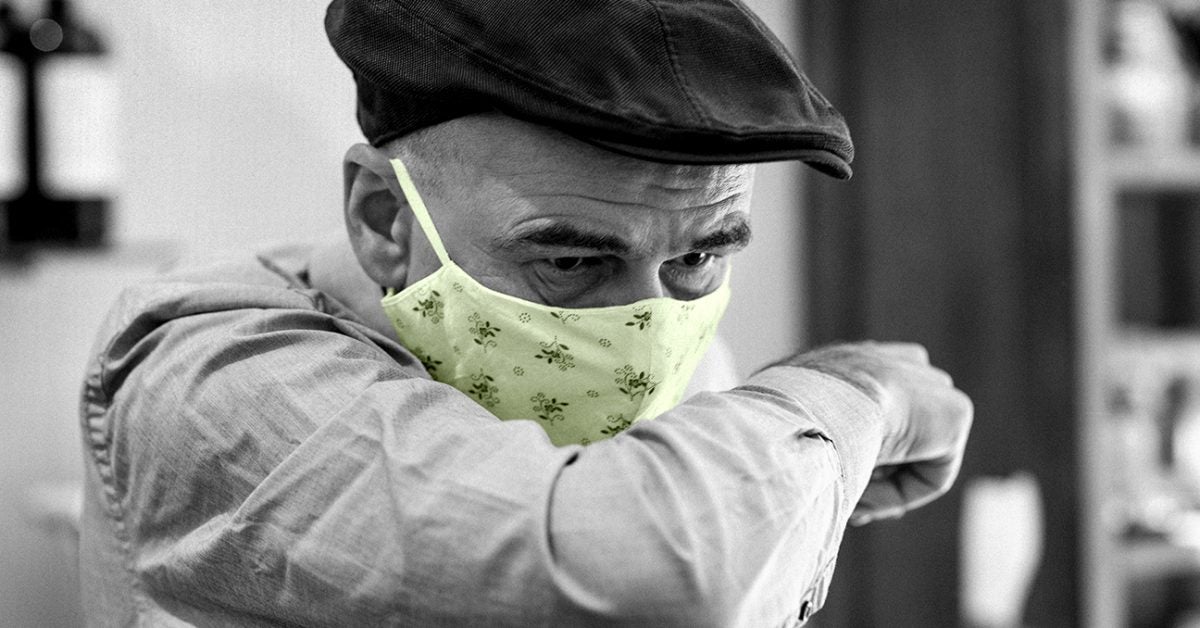
SARS-CoV-2, which is the virus that causes COVID-19, is a respiratory illness that commonly causes a dry cough.
A dry cough is a cough that does not produce mucus or phlegm from the airways.
A person with a dry cough may experience a dry, scratchy, sore, or rough throat. There may also be a sensation of a tickle in the throat or a patch of the throat that feels dry, even when swallowing.
There may not be any relief from a dry cough, even after coughing.
Learn more about a dry cough with COVID-19 in this article.
A dry cough is a common early symptom of COVID-19. According to some estimates, 60–70% of people who develop COVID-19 symptoms experience a dry cough as an initial symptom.
However, several other conditions can cause a dry cough, including:
Related symptoms
A dry cough that is accompanied by other symptoms may indicate COVID-19 as the cause. These related symptoms include:
- headaches
- muscle or joint pain
- a sore throat
- a runny or congested nose
- diarrhea
- nausea or vomiting
- shortness of breath or difficulty breathing
Self-reported symptoms include:
- a loss of taste and smell
- a loss of appetite
- unexplained or unusual exhaustion
- a high temperature
A 2020 study from Wuhan, China, found that the majority of people with COVID-19 seemed to develop a dry cough 1 day after becoming ill and that the cough lasted for roughly 19 days. The cough persisted for roughly 4 weeks in around 5% of people in the study.
However, ongoing studies are finding that a cough is one of several symptoms that may continue after initial recovery from COVID-19.
Children and young adults can experience COVID-19 symptoms, though they may be less likely to develop COVID-19.
Some studies also suggest that children and young adults may be less likely to experience the common COVID-19 symptoms, including a cough, a fever, and shortness of breath.
In addition, they typically experience less severe forms of the disease and its symptoms. However, an exception to this rule seems to be that infants under 1 year of age with underlying conditions may be more likely to develop severe COVID-19.
Experts know much less about the prevalence or common presentation of a dry cough related to COVID-19 in children and young adults than with COVID-19 in adults.
According to the study above, 54% of people under the age of 18 years experienced a cough as a symptom of COVID-19.
People who continue to experience symptoms after recovery may be experiencing post-COVID conditions. There are several of these conditions, including:
- long COVID
- multiorgan effects of COVID-19
- effects of COVID-19 treatment or hospitalization
Even a person who did not initially have severe COVID-19 symptoms may develop longer-term health issues, according to the Centers for Disease Control and Prevention (CDC).
A cough is a common symptom of long COVID, alongside fatigue, dizziness, and joint pain.
In fact, according to a study in The Lancet Respiratory Medicine, online surveys have found that 20–30% of people still experience a dry cough 2–3 months after becoming ill with COVID-19.
An early study from Italy found that 16% of people who recovered from COVID-19 reported still experiencing a cough 2 months after being discharged from the hospital.
More recent studies, such as the one in The Lancet Respiratory Medicine, have also found that a cough may continue for weeks to months after recovery from COVID-19.
Some other symptoms associated with post-COVID conditions include:
- exhaustion
- nerve and joint pain
- brain fog, or confusion and memory problems
- gastrointestinal problems
- a loss of taste or smell
To reduce the risk of having exposure to SARS-CoV-2 and transmitting it to other people, the CDC recommends the following preventive measures:
- Wear a face mask when in public and among other people.
- Wash the hands thoroughly and frequently with soap and water or hand sanitizer.
- Stay 6 feet (2 meters) away from people who are not in one’s household.
- Get a COVID-19 vaccine when it is available.
- Avoid poorly ventilated indoor areas and crowds.
Because a dry cough may be a symptom of COVID-19, a person should get a test, and self-isolate until they receive the results, if a dry cough:
- causes a lot of coughing for longer than 1 hour
- gets worse
- causes three or more significant coughing episodes within 24 hours
This online tool may be useful if a person wants to self-check for COVID-19.
However, a person needs immediate medical attention if any of the following symptoms occur:
- severe difficulty breathing
- pale, gray, or bluish skin, nail beds, or lips, depending on a person’s skin tone
- continuing pressure or pain in the chest
- an inability to stay awake
- difficulty waking
To get medical attention, a person can call 911 or the nearest emergency facility and ask for advice on how to safely get treatment for a person who has or may have COVID-19.
A dry cough is one of the most common, and early, symptoms of COVID-19, especially in adults.
Children and young adults may be less likely to experience common COVID-19 symptoms such as a dry cough, or they may experience less severe versions of the disease itself.
A local healthcare professional can offer advice on safe testing and potential treatment for COVID-19. Call 911 or the nearest emergency facility if a person is experiencing severe COVID-19 symptoms.
April 23, 2021 at 05:05PM
https://www.medicalnewstoday.com/articles/dry-cough-covid
Dry cough and COVID-19: What to know - Medical News Today
https://news.google.com/search?q=dry&hl=en-US&gl=US&ceid=US:en

No comments:
Post a Comment